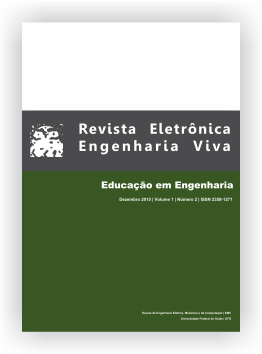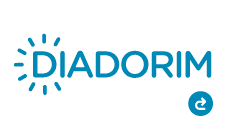Contribuições das Empresas Juniores para a Formação Acadêmica na Visão dos Alunos da UDESC Joinville
Abstract
Existem questões que têm interessado a crítica quanto ao ensino de engenharia, especialmente os temas relacionados à unidisciplinaridade, à fragmentação de conteúdos e aos novos currículos. Questionam os críticos se a universidade está atendendo as demandas sociais e de mercado, assim, projetos de extensão como os de Empresas Juniores (EJs) são experiências que tentam resgatar eventuais lacunas entre o ensino tradicional e o mercado. Este estudo empírico elaborado com membros e egressos de EJs do Centro de Ciências Tecnológicas (CCT/UDESC), discute a questão da eficácia deste projeto na formação do discente visto sob a ótica destes acadêmicos. Utilizou-se questionários estruturados e a análise se deu por meio estatística descritiva. Os resultados indicam que, na opinião dos alunos, a participação na EJs foi fundamental para uma maior aceitabilidade no mercado de trabalho e que projetos desta natureza devem ser incentivados pela instituição de ensino.
Riferimenti bibliografici
F. de M. S. Alves and J. N. Reinert, “PERCEPÇÃO DOS COORDENADORES DOS CURSOS DE GRADUAÇÃO DA UFSC SOBRE A MULTIDISCIPLINARIDADE,” Rev. da Avaliação da Educ. Super., vol. 12, pp. 685–702, 2007.
D. Mendes, “A pedagogia científica de Bachelard : uma reflexão a favor da qualidade da prática e da pesquisa docente,” Educ. e Pesqui., vol. 34, no. 2, pp. 361–370, 2008.
D. Ziliotto and A. Berti, “A aprendizagem do aluno inserido em empresa júnior,” Rev. Conex. UEPG, pp. 210–217, 2012.
M. C. Morosini, “Qualidade da educação universitária : isomorfismo , diversidade e eqüidade,” Interface - Comun. Saúde, Educ. [Periódico revisado por pares], vol. 5, pp. 89–102, 2001.
“Empresa Junior Joinville Consultoria e Projetos.”
M. M. Maciel, E. T. Barbosa, and M. N. Filho, “DO CONHECIMENTO ACADÊMICO ÀS PRÁTICAS EMPRESARIAS: O CASO DA EMPRESA JÚNIOR DE ADMINISTRAÇÃO DA UFPB,” in X ENCONTRO DE INICIAÇÃO À DOCÊNCIA, 2008, no. 1.
R. G. de Oliveira and C. A. G. Di Giorgi, “Princípios da cognição situada e as diretrizes curriculares nacionais para a formação de professores,” vol. 34, no. 3, pp. 360–368, 2011.
R. dos Santos, “COMPETÊNCIAS PROFISSIONAIS EM ALUNOS DE ENGENHARIA: ESTUDO DE EMPRESA JÚNIOR COMO FERRAMENTA DE INTEGRAÇÃO TEORIA-PRÁTICA,” Rev. LUGARES Educ., pp. 3–13, 2012.
C. Araújo, S. M. Wolf, and T. V. A. Ribeiro, “Empreendedorismo E Educação Empreendedora: Confrontação Entre A Teoria E A Prática,” Rev. Ciências da Adm., vol. 8, pp. 09–29, 2006.
S. M. Lewinski, L. A. Pilatti, J. L. Kovaleski, and A. C. Frasson, “Contribuição da Empresa Júnior para desenvolvimento das competências necessárias a formação de Engenheiros de Produção,” in XVI Simpósio de engenharia de produção, 2009, pp. 1–12.
A. S. Dederichs, D. Ph, J. Karlshoj, and K. Hertz, “Multidisciplinary Teaching : Engineering Course in Advanced Building Design,” J. Prof. Issues Eng. Educ. Pract., vol. 137, no. 1, pp. 12–19, 2011.
A. Y. Gaser, C. B. Hall, J. I. Uribe, and M. P. Fried, “The effects of Previously Acquire Skills and Sinus Surgery Simulator Performance. Otolaringol Head Neck Surg.,” vol. 133, pp. 525–530, 2005.
B. Nicolescu, M. E. Rosenberg, M. Random, P. Galvani, P. Paul, and M. F. De Mello, Educação e Transdisciplinaridade II, 2002nd ed. TRIOM, 2000.
N. HOTALING, B. B. FASSE, L. F. BOST, C. D. HERMANN, and G. R. FOREST, “A Quantitative Analysis of the Effects of a Multidisciplinary Engineering Capstone Design Course,” J. Eng. Educ., vol. 101, no. 4, pp. 630–656, 2012.
J. J. Márquez, M. L. Martínez, G. Romero, J. M. Pérez, M. Engineering, E. T. S. I. I. U. Politécnica, M. Upm, and C. J. Gutiérrez, “New Methodology for Integrating Teams into Multidisciplinary Project Based Learning *,” Int. J. Eng. Educ., vol. 27, 2011.
Downloads
Pubblicato
Fascicolo
Sezione
Licenza
Copyright
The author is responsible for the following statements by submitting an article electronically in the International Journal of Alive Engineering Education (IJAEEdu):
a) States that the document in question was reviewed by an expert in English language and it is an original work and it holds the prerogative to grant the rights contained in this license. It also states that the document does not infringe, as far as it is possible to know the rights of any other person or entity.
b) If the document in question contains material which does not hold the copyright, the author states have obtained the copyright holder’s permission to grant the Universidade Federal de Goiás (UFG) the rights required by this license, and that such material whose rights are third is clearly identified and acknowledged within the text or content of the document.
c) States that the study was conducted in accordance with the ethical standards of all applicable institutional, local, national and international guidelines.
d) It also states that any person appointed as author or co-author of the document is aware of it and agrees to be so appointed.
Authorization Form
As responsible for the submission of the document, I authorize the School of Electrical, Mechanical and Computer Engineering of the Federal University of Goiás to provide the paper free of charge, through the Electronic System for Publishing Magazines UFG (SEER / UFG) or in printed form, without compensation of copyright, in accordance with Law No. 9610/98. Is allowed, reading, printing and / or download, as a promotion of the Brazilian scientific production. Any use of the work not authorized under this license or the copyright law is prohibited.



